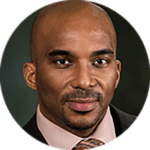Recently, Discovery Education had the honor of hosting a group of innovative leaders, including state commissioners, school superintendents, national experts, and policy makers, at our 8th Annual Leadership Symposium on September 28 and 29 in Denver, CO.
Inspired by this year’s theme The Great Emergence: Innovations Supporting the New Era of Education, the leadership symposium started with engaging sessions led by speakers like Cody Keenan, former chief speechwriter for President Barack Obama, Akimi Gibson from Sesame Workshop, and Dr. Robert Marzano. The symposium then wrapped up with a behind-the-scenes tour of the St. Vrain Valley Schools Innovation Center .
Keep reading for highlights of our key sessions, which led to open, honest conversations on topics like equity in education, funding, and competency-based learning systems. As education thought leader Dr. Christina Kishimoto said in her opening remarks, “You’re in a space where we’re not asking you to have solutions. . . . we are asking you to pose the questions, leave questions unanswered if necessary, explore ideas, and push one another to think deeper in a way that we can’t do in the day-to-day of the job.”
Meet the Symposium Moderators
Dr. Luvelle Brown
Superintendent, Ithaca City Schools, NY
Dr. Brown (@LuvelleB) is an award-winning, nationally recognized education leader who has served as a teacher, assistant principal, principal school CIO, and superintendent, and is the 2022 recipient of the prestigious AASA Dr. Effie H. Jones Humanitarian Award. During his current tenure as Superintendent of Ithaca City Schools, the district has experienced unprecedented levels of success. He is a highly-regarded speaker and workshop facilitator addressing a range of topics for local, regional, and national audiences.
 Dr. Christina Kishimoto
Dr. Christina Kishimoto
CEO & Founder, Voice4Equity
Dr. Kishimoto (@Voice4Equity) is a national leader on educational policy and an advocate for equity and inclusion. From the Bronx, NY, she attended Barnard College and earned her PhD from Columbia University Teachers College. She served as superintendent in districts in Arizona and Connecticut, as well as superintendent of the Hawai’i Department of Education. In 2021 she founded Voice4Equity with a mission to increase the number of women and leaders of color at the policy table.
Dr. Brown and Dr. Kishimoto are also regular session leaders and moderators for Discovery Education’s Equity Talks, a thought leadership webinar series for educators who strive to bring equity and excellence to their schools and districts.
The Great Emergence: Innovations Supporting the New Era of Education
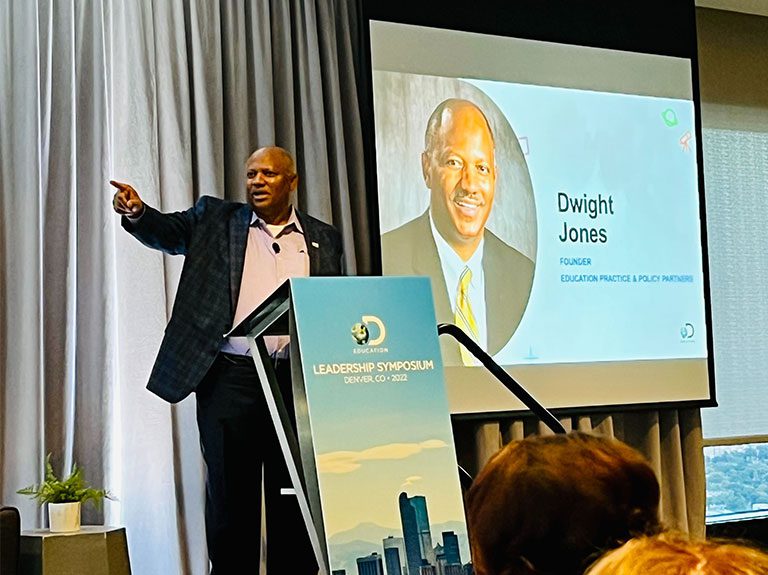 This session highlighted the voices and work of school district leaders, including Dwight Jones, Founder & CEO of Education Practice and Policy Partners, who have successfully navigated the complexities and challenges of the past two years. Additionally, the panelists shared recent innovations that have emerged in their school district communities.
This session highlighted the voices and work of school district leaders, including Dwight Jones, Founder & CEO of Education Practice and Policy Partners, who have successfully navigated the complexities and challenges of the past two years. Additionally, the panelists shared recent innovations that have emerged in their school district communities.
Verletta White, Superintendent of Roanoke City Public Schools in Virginia, gave a clear, meaningful, and at times personal, presentation about innovation and how it can make educators and our educational systems more effective and efficient. Today’s innovation is rooted in technology, but she recognized that there can be a disconnect between the innovative solutions that leaders choose and teachers’ perception of those solutions. This disconnect can create a barrier, or gap, between school leaders and their faculty.
How can leaders make innovative change sound exciting to their faculty? How can they make the perception positive? Verletta believes that “fixing that gap, that barrier, can help lead innovative ideas forward, get teachers on board, and help us solve real problems.” She points out it’s imperative that teachers feel supported and heard, first and foremost. “We can close that gap by listening to teachers and giving them a voice, finding common pain points, and inviting them to be an integral part of the innovative solution so they can fully understand their role and have the right perception.”
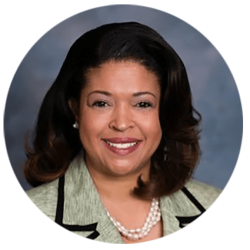
Verletta White
Superintendent, Roanoke City Public Schools, VA
Verletta White is a results-driven, student-centered visionary leader with over 25 years of educational experience, including as a teacher, principal, chief academic officer, area assistant superintendent, and the interim superintendent of Baltimore County Public Schools. Born and raised in Baltimore, Mrs. White attended Townson University and earned her masters from Notre Dame of Maryland University.
A Conversation with Dr. Robert Marzano: Leading a Competency-Based System So All Students Thrive
Dr. Marzano’s vision for K–12 education focuses on one simple truth: most schools can be highly effective in promoting student learning. To show how, he created the Marzano High Reliability Schools framework. This framework, based on 40 years of educational research, identifies how a school can become a high reliability school—where all students learn the content and skills they need for success in college, careers, and beyond.
Competency-Based Learning Systems
As Dr. Marzano noted, competency-based learning systems “can be quite the paradigm shift, but we’re standing at the cusp of real change.” To implement a competency-based learning system, Dr. Marzano suggests the first step should be to “get your best thinkers together and ask ‘Do you believe that students should work at their own pace?’ If so, is your current structure designed for that?” The end goal of a competency-based approach is having the structure to deliver high-quality teachers who in turn give students the ability to progress at their own pace.
Dr. Marzano also delved into the origins of the competency-based learning system, crediting John B. Carroll, a well-known psychologist, for asking the question “Why is time a constant but learning is not?” By making learning a constant and time a variable in education, students can learn, and excel, at their own pace. This concept helped spark the competency-based learning system so widely used today.
lastly, Dr. Marzano expressed the importance of partnerships like that between Marzano Academies and Discovery Education to help launch ways of bringing competency-based learning systems into schools. For example, our partnership enables Discovery Education to delivers microlearnings from Marzano Academies right to its educators so they can implement a competency-based learning system in their classrooms.
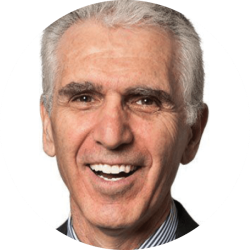
Dr. Robert Marzano
Chief Academic Officer Marzano Academies
Dr. Robert Marzano is a renowned speaker, teacher trainer, author, and researcher in competency-based education systems. He began teaching in 1968 and has served in many areas in education since then, including curriculum, leadership, and assessment. He is the founder of multiple initiatives including Marzano Research, Marzano Evaluation Center, and Marzano Academies. Dr. Marzano earned his bachelor’s degree from Iona College, a master’s degree from Seattle University, and a doctorate from the University of Washington.
Progress Amidst Resistance: Effective Local, State, and National Level Communications Strategy in Times of Crisis
Handling a crisis is something that most leaders will face at least once in their lifetime. The communications surrounding that crises can have a significant impact on the public’s perception of its effects and of its management. Cody Keenan provided keen insight into how to develop an effective communications strategy in times of crisis and how leaders can be prepared.
There are three key takeaways Keenan presented:
- Ensure those who are affected by the event that “life will keep going” and the “world will keep turning.” This gives the perception that the crisis is temporary, and the familiar will return.
- Show empathy to connect with those who are affected by the crisis on a personal level. To demonstrate this, Keenan shared some of his experience working with former President Obama when handling crises during his presidency. It was imperative to Obama that he spoke personally with the victims to let them know that they are heard and seen.
- Have a communications plan ready ahead of time—and communicate consistently and honestly about each step. Keenan emphasized that “people want to know that something is happening. Give an honest assessment and identify specific gains, no matter how incremental.”
Participants also learned how to form a “pre-crisis” communications plan. “Complete a vulnerability audit of your district,” Keenan advised. “What are your knowns and unknowns? What are you ready for?” Once these are identified, the plan should, at the very basic level, identify the team that knows the crisis communication plan and is ready to implement it, a “situation room,” and a spokesperson. Last, but not least, meticulously fact check every step of the way.
“At the end of the day,” stated Keenan, “if you manage a crisis well, not only is it good for your reputation, but you build trust with the community.”

Cody Keenan
Former White House Chief Speechwriter for President Barack Obama
Cody Keenan began his career working for Senator Ted Kennedy, for whom he wrote his first speech. He then began interning for Obama’s 2008 campaign, and quickly moved up the ranks to chief speechwriter. Today he teaches speechwriting at Northwestern and is a published author. Keenan holds a master’s degree from Harvard University and a bachelor’s from Northwestern University. He is the author of Grace: President Obama and Ten Days in the Battle for America.
Statewide Partnerships: Unlocking Access to High-Quality Content for Students, Educators, and Families
This session explored how education and corporate leaders can collaborate to make their states a better place to learn, work, and live. These innovative partnerships support teachers and provide students of all ages with the academic and technical skills necessary to succeed in future careers and become lifelong learners. Statewide partnerships not only create learning environments that help all students succeed in the classroom and beyond, but also a deeper, more diverse pool of talent that will drive economic prosperity across the state.
Driving Equity Through Continuity of Learning
“We need to have continuity of learning,” emphasized Jhone Ebert, Superintendent of Public Instruction at the Nevada Department of Education. “At the state level, we looked at three main buckets to ensure this continuity of learning.”
- The first bucket is equipment in the classroom. The state created a dashboard to track where tools and resources were lacking and then issued a 1:1 device and wifi hotspot program for all students.
- The second bucket is about supporting teachers. Ebert led the effort to start the Nevada digital learning collaborative that empowered teachers to help each other with educational technology.
- The third bucket is all about content. “I needed to make sure everyone, including teachers and families, had access to high-quality content.” Ebert state. “We also had to ensure that content served timely needs, like social justice and multiple language supports.”
Then through Discovery Education’s strategic Social Impact Partnerships, the Nevada DOE connected with Nevada Gold Mines to underwrite the funding of Discovery Education access to all students statewide. This innovative partnership helped establish long-term, positive change for Nevada students and sets a precedent for successful statewide partnerships focused on equity.
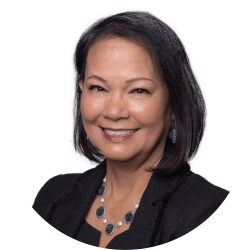
Jhone Ebert
Superintendent of Public Instruction, Nevada Department of Education
As the state leader behind the Nevada Ready! initiative for equitable, quality instruction, Jhone Ebert makes it her mission to ensure every student has a clear pathway to success. Prior to leading Nevada’s education system, Ms. Ebert worked for the Clark County School District for 25 years, where she served in various roles from math teacher to Chief Technology Officer. Ms. Ebert received her Master of Education from the University of Nevada, Las Vegas, and her bachelor’s from California State University Fresno.
A Playful Approach to Scaling Whole-Child Education for Early Learners
Young learners are entering our schools having need opportunities to socialize with peers, develop agency, and grow fundamental numeracy, early language, and literacy skills. To ensure these students are ready to actively engage in learning, education leaders must think beyond helping kids prepare for school, by helping schools prepare for kids. In this session, Akimi Gibson from Sesame Workshop explored the research behind playful learning experiences used to scale equitable access to whole-child growth and ensure all kids grow smarter, stronger and kinder.
How did Sesame Workshop begin?
 Initial research in early learning education revealed that there is a hidden curriculum behind the usual ABCs and 123s. Children merely seeing themselves represented made a big difference. In 1969, the founders understood this as well as they set out to answer a bold question: could television be used to educate kids and prepare disadvantaged children for school? The answer became the longest-running children’s television show, Sesame Street, that gives all children the opportunity to see themselves represented, while also focusing on the fundamentals.
Initial research in early learning education revealed that there is a hidden curriculum behind the usual ABCs and 123s. Children merely seeing themselves represented made a big difference. In 1969, the founders understood this as well as they set out to answer a bold question: could television be used to educate kids and prepare disadvantaged children for school? The answer became the longest-running children’s television show, Sesame Street, that gives all children the opportunity to see themselves represented, while also focusing on the fundamentals.
“We are entering our 53rd year of this vast experiment.” explained Akimi Gibson. “And every year we learn something new. The ABCs and 123s don’t change, but how children engage around them and understand these concepts does.” Sesame Workshop recognizes the importance of connecting with schools and districts to inform how they continue this experiment and uphold their legacy of research-based, science-based.
Research-Based, Whole-Child Approach
Today, there are over 1000 independent studies completed on Sesame and its effect on student success. “Everything is research-based.” outlined Akimi. In fact, all media created by Sesame Workshop goes through a comprehensive cycle of assessment and evaluation. “There are long-term, formative assessments for everything we create.” stated Akimi. “Then we go into the distribution phase, where we decide when and where the media is released.” Lastly, Sesame Workshop conducts a summative evaluation to determine the media’s affects on early learning and whole-child development.
While, Sesame believes in a whole-child approach, it also believes in a dual-generational effect as well. As Akimi explained, “We are working with children because of their grownups. We facilitate the connection between teachers and families and meeting the children where they are, at home, in communities, and in schools.” In fact, the dual-generational effect is driving Sesame Workshop’s latest identify study, which Akimi Gibson went into detail to explain:
“We are now researching mental wellness for children to facilitate the ‘just right fit’ between the educator and the family, for the benefit of the child. Because both the educator and the family are critical to the success of the child, and therefore should be working together on behalf of the child.”
Lastly, Akimi touched upon the importance of embedding professional learning, teacher knowledge, and growth into the curriculum itself to effectively implement a while-child approach to early learning. At the end of the day, teachers must feel supported and empowered to successfully prepare their youngest learners for success
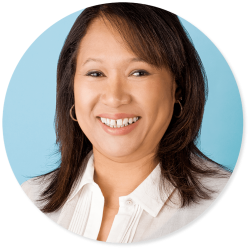
Akimi Gibson
Vice President & Educational Publisher Sesame Workshop
As a dedicated advocate for early learning with expertise in child development and early childhood education, Akimi Gibson leads the Formal Learning Initiatives, partnerships, and business for Sesame Workshop. She has published several children’s books, including There’s a Hole in My Pocket and In the Woods, and has extensive experience in product development and editorial management.
A Visit to The Innovation Center of St. Vrain Valley Schools
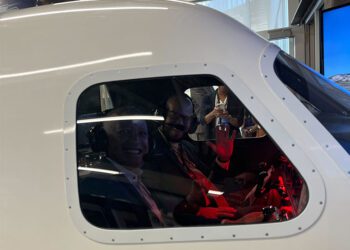 On day two of the leadership symposium, Dr. Don Haddad, Superintendent of St. Vrain Valley Schools, gave a behind-the-scenes tour of The Innovation Center of St. Vrain Valley Schools. Participants got to see firsthand how innovative solutions can be implemented to create transformative learning opportunities for today’s students.
On day two of the leadership symposium, Dr. Don Haddad, Superintendent of St. Vrain Valley Schools, gave a behind-the-scenes tour of The Innovation Center of St. Vrain Valley Schools. Participants got to see firsthand how innovative solutions can be implemented to create transformative learning opportunities for today’s students.
Students learning at the Innovation Center transcends the traditional classroom and provides experiential opportunities that are developing today’s students into tomorrow’s leaders, innovators, and changemakers. In addition to rigorous extended learning and mentorship opportunities, students gain valuable experience through employment that focuses on designing and engineering technology solutions for industry and community partners. Learn more at innovation.svvsd.org or follow @CSVVSD on Twitter.
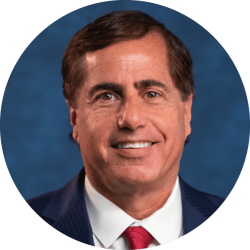
Dr. Don Haddad
Superintendent of St. Vrain Valley Schools, CO
Dr. Haddad has been an educational advocate and leader for nearly 40 years with a focus on whole school improvement, innovation, and system reform. Before serving as Superintendent, Dr. Haddad held the positions of principal, executive director of secondary instruction, and deputy superintendent. During his current tenure as Superintendent of St. Vrain Valley Schools, the district has been awarded numerous national grants and awards and continues to have several top-ranked high schools in the nation by U.S. News and World Report.
